|
Our piano hasn't been tuned since... forever. It was @laputis' piano before we met, of course. She graduated from the art gymnasium playing on it. She practiced on it during her studies at the academy of music. Over these decades the pitch of the piano went down exactly half step. It started interfering with her memory of normal pianos at her work. We wanted to get it tuned for a long time but we procrastinated a lot. But recently @laputis decided she will start creating an ear training and harmony course for our online students and so it seemed like a perfect time to tune our piano.
So yesterday I brought Darius Narmontas, a colleague piano technician from @laputis' school to tune it. Since the instrument hasn't been tuned for a long time, he said he might need to come over next week to finalize the tuning. The first thing he did after checking the initial tuning was to vacuum the dust under the keys. It was interesting to see how the inside of the keyboard looks like when you remove the keys. There was a lot of dust, as you can imagine. We have never cleaned it so I brought a little vacuum cleaner from upstairs and with the help of a small brush he removed all the dust. Our piano technician is very methodical, has tons of experience tuning hundreds of pianos at school and all over the town so he was very quick and strategic about everything. I observed how he arranged the keys in packs on top of one another before vacuuming and then put them back in reverse order. Then came the tuning phase. He had this tuning instrument which he used to turn the strings one by one. But as you know, pianos have double and triple strings so he muted the additional ones while he worked on the others. He tuned in perfect fifths by ear. I imagined he would use an electronic tuner but he is that good that he is quick enough to not need it. After around 90 minutes he was done and I took him back to school. In all the amazement (or maybe because I didn't want to share), I forgot to offer him a cup of tea and some Christmas sweets... I apologized for this in the car but of course, he is such a nice man that he said he still feels energized from the coffee at school (@laputis wasn't happy about this). He promised to come over next week to finalize the tuning and to adjust the mechanics a little bit. But in general he said the state of our piano is quite good and it holds tuning very well. He was glad we are keeping the instrument hydrated by keeping a jar with water inside. I asked how often does he recommend tuning it and he said, factory recommendations are every 6 months but in his opinion once a year is enough, around this time of year, when there is heating and the seasons have changed recently. Before writing this post, I just played a suite in G major by Cesar Franck from L'Organist on our piano and it sounded very nice. @laputis even gave me a little applause. Of course, I had to ask for it...
Comments
Vidas: Hi guys, this is Vidas.
Ausra: And Ausra. V: Let’s start episode 259 of Secrets of Organ Playing Podcast. This question was sent by Krampah and he writes: Thanks so much Vidas, for your advice piano playing, I can accompany hymns and quite a number of anthems for my church, I now want to take my piano playing to a concert pianist level, I have played through a couple pianoforte tutors, will I be in a rush if I am to take Handel Messiah's pieces and play through them, or I should work more with the beginner pianoforte tutors to sharpen my sight reading before?.... Thanks in advance for any considerations.... Best Regards Krampah V: It seems like Krampah is needing pianistic advice, not organ. A: Yes, yes, and we could give that too since we both played piano professionally since very, very early age and he mentioned that he would want to become a concert level pianist, yes? V: Yeah. A: So, it you really want to do that I don’t think that Handel’s Messiah is a good piece to play on the piano. I don’t think many majoring in piano performance would do it because it’s not an original piece for the piano and piano has such a wide repertoire itself. V: You are right Ausra, I just thought for a second, what if Krampah wanted to play piano repertoire in church. Sometimes they have this spots where you can play piano music after services or a special occasion maybe for sacred concerts. A: Well, then yes you could do that. But in addition what he is doing on the piano, like having hymns and anthems for church I think he would need, in order to improve, he would need to work on some pianistic repertoire, especially technical repertoire, that he would not necessarily have to perform in church but to work on pieces like Czerny’s Etudes. I think this is source number one. V: So we can advise a little bit of systematic approach, right? Etudes you say? A: Yes, scales. V: Scales. A: So basically you could play Hanon exercises. V: And then probably then Bach keyboard music. A: Yes, inventions two-part and then three-part inventions. V: Well Tempered Clavier. A: Well, yes, later on. V: French Suites, English Suites, Goldberg Variations. A: That’s right, of course all the classical sonatas (Haydn, Mozart, Beethoven). V: Uh-huh. And then of course romantic works. A: Yes, definitely. V: Starting with probably Mendelssohn’s Songs Without Words. A: Yes, or if you like Tchaikovsky you could do that Children’s Album and then later on you could play some Liszt, Chopin. V: Brahms, Schumann. A: That’s right. V: Each of those great romantic composers has probably thick volume of works that if you went through you would be equipped to do anything you want with your technique. A: Yes, that’s right because if you want to be really good at the piano this is the repertoire that you have to deal with. V: Would Krampah benefit from contemporary music? With contemporary I’m saying about modern music primarily, not necessarily 21st century. But classical piano repertoire like let’s say Prokofiev, and probably Hindemith, and people who lived in the middle of the 20th century. A: Yes, that would be beneficial too but I think those compositions that you mentioned before are more important. V: More important. A: More important, yes. Because I’m not telling you that you shouldn’t be playing Handel’s Messiah, it’s wonderful. But I’m just telling that in order to play transcription, and this is a transcription you know, you have to have fairly great piano technique. And in order to build that technique you will not build it up only by playing transcriptions, and hymns and anthems on the piano. V: It would be wise to choose some systematic approach in general where you could learn each semester every few months four or five pieces at least, right? As we mentioned probably Bach or other polyphonic works. A: Well you know I would really start with the Etudes. For piano players it’s crucial. And if you would take Czerny Etudes then if you would study them carefully you would see that each Etude teaches you different pianistic technique. Some of them are for right hand, some are for left hand, some teaches you how to play broken arpeggio, some teaches you how to play chords, some teaches you how to play scales, and all those other pianistic tricks. V: Question. Is it possible to become a decent pianist playing just Czerny Etudes? A: Well, yes in terms of technique, yes you could develop great technique only playing Czerny Etudes because he wrote so many of them. So if you would be able learn them all I think you might be able to learn any piece on the piano ever written. And you know people sometimes make mistakes when playing piano that we sort of ignore the Czerny Etudes and we skip them and we go to Chopin Etudes right away and I think it’s a big mistake because I think Czerny is the foundation of all the piano stuff. V: And sometimes people do the mistake with classical sonatas instead of playing Haydn, Mozart, and then Beethoven, sometimes they want to play “Moonlight Sonata” right away instead of playing Haydn first. A: Well if you don’t like Haydn, you could play the first sonata by Beethoven in F Minor. It’s perfectly suited too. It’s in traditional sonata form. V: Or early sonatas by Mozart too. Probably Scarlatti sonatas are good. A: Yes they are very good for finger. V: So that’s a lot of advice, right? It will take many months to achieve that, probably even years to develop a decent pianistic technique. A: But if you don’t want to play all that pianistic repertoire I would suggest that for right now you would pick up let’s say two etudes by Czerny in addition to what you are practicing for church, in addition to those hymns and anthems and Handel’s Messiah and after you are comfortable playing those two etudes but choose that they would develop different techniques at the same time. V: Sometimes left hand moves, sometimes right hand moves, right? A: Yes. Well usually there is one sort of model for one etude the way Czerny writes. And after you get comfortable with those pick up two other etudes. V: And since he wrote so many opuses of etudes, so many collections, sight-read through them a little bit to get a grasp of where you stand in terms of advancement, which collection to choose right now. A: True, Maybe you won’t have to start with the first one. Maybe you can go to a later opus but you need to check it. V: And there are other pianistic composers who wrote etudes like Loeschhorn, Berens, who are also beneficial if you don’t like Czerny. A: That’s right but I think Czerny is better foundation for piano technique. V: OK guys. So this advice is probably useful for anyone interested in developing piano technique, right? For closing, is it useful for organists to have a good piano technique? A: Definitely. Especially if you like romantic, French symphonic organ music, if you like to play organ transcriptions for organ then definitely it never hurts to have excellent piano technique. V: But adjusted to the organ. It’s not the same. OK guys, thanks this was Vidas. A: And Ausra. V: Please send us more of your questions, we love helping you grow, and remember when you practice… A: Miracles happen.
This blog/podcast is supported by Total Organist - the most comprehensive organ training program online. It has hundreds of courses, coaching and practice materials for every area of organ playing, thousands of instructional videos and PDF's. You will NOT find more value anywhere else online...
Total Organist helps you to master any piece, perfect your technique, develop your sight-reading skills, and improvise or compose your own music and much much more... Sign up and begin your training today. And of course, you will get the 1st month free too. You can cancel anytime. Check it out here Here's what one of our students is saying: Dear Vidas, I have done some training as a monthly subscriber for a few months - did the Bach Little Preludes and Fugues. I particularly appreciate when you have training videos along with the pdfs you post. Your going through an analysis of the piece and pointing out possible tricky areas is helpful to me; I can pick up on things I might have missed on my own. I also find the structure you provide by suggesting practice "chunks" with timetables very helpful - the more structure, the better! Looking forward to delving in further this year! Dianne Would you like to receive the same or even better results that Dianne is getting? If so, join 80+ other Total Organist students here. Welcome to Secrets of Organ Playing Podcast #54!
Should organists continue to play the piano? Listen to the conversation with Jeremy David Tarrant who is an internationally acclaimed concert organist and church musician from Detroit, Michigan. Organ technique can be developed through regular, smart, and persistent practice. One of the best ways to advance in organ playing is through piano practice. People who start playing the organ after some years of piano studies are definitely in better position than those who start directly from the organ. In this article, I will give you five reasons why practicing on the piano can make wonders to your organ playing.
The basis of modern legato organ technique is piano technique. Ever since modern organ technique was first formalized by Jacques Lemmens (more on this history you can read in this Orpha Ochse's book)in the middle of the 19th century, the legato touch became a norm even for baroque compositions for a long time. Lemmens’ method was perfected by a few other organists, like Marcel Dupre and Harold Gleason who published their own organ method books. Traditionally, normal touch for much piano music is also legato. I am not suggesting that baroque music must be played legato on the piano too, but I want to demonstrate how all pervasive romantic piano tradition was to organ paying. Piano keyboard is often harder than organ. If you compare various organ keyboards to that of the piano, you will find that to depress a key on the organ (without couplers, of course) often is easier than on the piano. This is especially true on electronic organs, on electric action organs, on pneumatic action organs with barker levers, on electro-pneumatic action organs, and even on small tracker action organs, such as positive organs. This feature of the piano keyboard gives you a lot more resistance. In other words, if you play technically challenging fast exercises, like Hanon virtuoso pianist exercises on the organ for some twenty minutes, your fingers are likely to be less tired than if you play them on the piano. On the piano all inequalities of the touch is much more visible than on the organ. Try to play an excerpt of any organ composition on the piano and you will notice right away how easy is to play one note too loud with your thumb or too soft with your pinky on the piano. In other words, you must work very hard too make all notes sound dynamically equal on the piano. This is so because of the dynamic possibilities that piano action allows. Therefore the stronger and longer fingers often play too loud and shorter fingers too soft. To equalize all notes, by the way, is our goal when practicing organ music on the piano. Piano practice develops finger dexterity. If you play exercises and organ music on the piano regularly, gradually you will notice how much easier it will become for you to play in a fast tempo. Your touch will become light and swift, your virtuoso passages will sound truly virtuosic. Such technically challenging pieces, as Prelude and fugue on BACH and Fantasy and Fugue on “Ad nos, ad salutarem undam” by Liszt or Sonata by Reubke will pose no difficulty to you. Piano practice develops finger independence. If you ever have noticed in your organ playing that technically advanced pieces sounds sloppy, practice them on the piano. All these technical challenges arise because our fingers might not be independent enough. You may notice it very clearly if you play a scale in a very fast tempo on the organ. It will sound legato, of course, which is not necessarily a bad thing. What is worse that this scale may be performed unequally. In other words, if you record this scale and play it back in slow motion, then you may be able to hear that a few notes could be stuck together and others would sound too detached. Therefore, piano practice helps in developing finger independence needed for technically challenging music. If you practice your organ pieces and exercises on the piano regularly, chances that you will achieve a high level in organ playing are quite good. Piano practice will give you finger dexterity and independence that will propel your organ performance on to the next level. When play piano, you can practice playing pedal part of organ compositions on the floor. That will save you much precious time. However, never forget that organ touch is very different from piano touch and practice accordingly. If you would like to know more about the practicing techniques on any keyboard instrument, I highly recommend Keyboard Practice Skills by Elaine Grover. This compact book presents a comprehensive presentation of all the basic practice techniques needed for successful mastering of keyboard skills. Chapters include "Warm-up Exercises," "Creating a Practice Routine," "Learning the Basics," "Developing a Practice Mind," "Using Practice Skills," "Building Momentum," and others. By the way, do you want to learn to play the King of Instruments - the pipe organ? If so, download my FREE video guide: "How to Master Any Organ Composition" in which I will show you my EXACT steps, techniques, and methods that I use to practice, learn and master any piece of organ music. |
DON'T MISS A THING! FREE UPDATES BY EMAIL.Thank you!You have successfully joined our subscriber list.  Photo by Edgaras Kurauskas Photo by Edgaras Kurauskas
Authors
Drs. Vidas Pinkevicius and Ausra Motuzaite-Pinkeviciene Organists of Vilnius University , creators of Secrets of Organ Playing. Our Hauptwerk Setup:
Categories
All
Archives
July 2024
|
This site participates in the Amazon, Thomann and other affiliate programs, the proceeds of which keep it free for anyone to read.
Copyright © 2011-2024 by Vidas Pinkevicius and Ausra Motuzaite-Pinkeviciene.
Terms of Service and Privacy Policy
Copyright © 2011-2024 by Vidas Pinkevicius and Ausra Motuzaite-Pinkeviciene.
Terms of Service and Privacy Policy

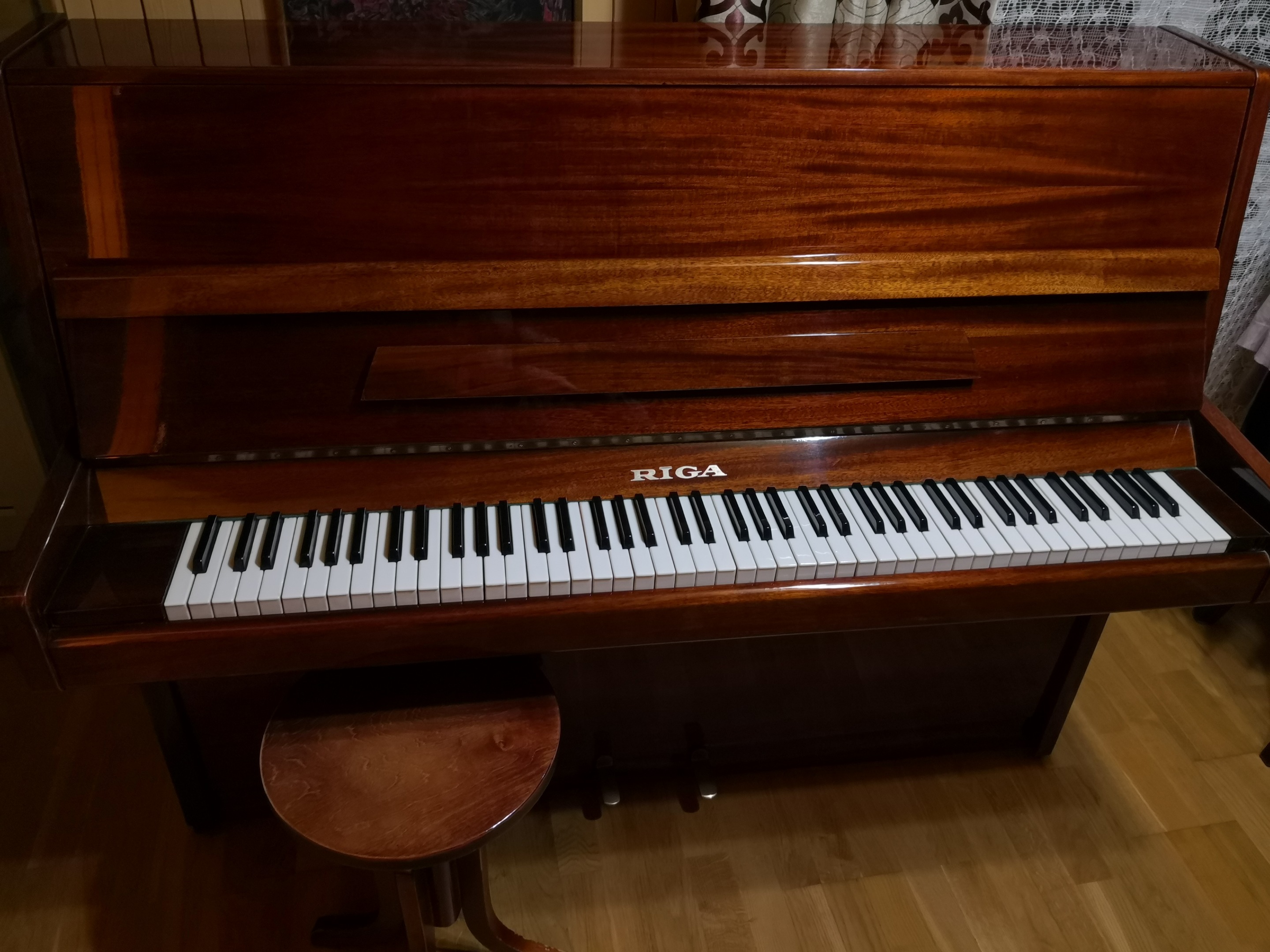
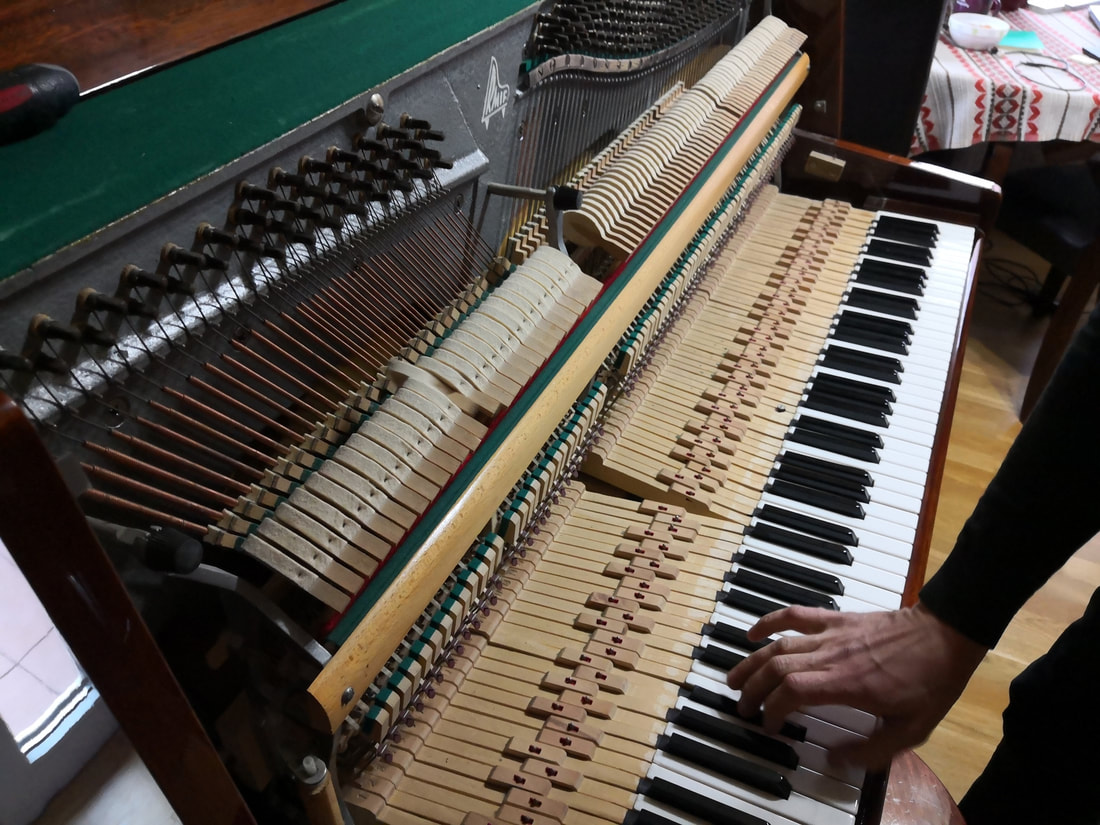
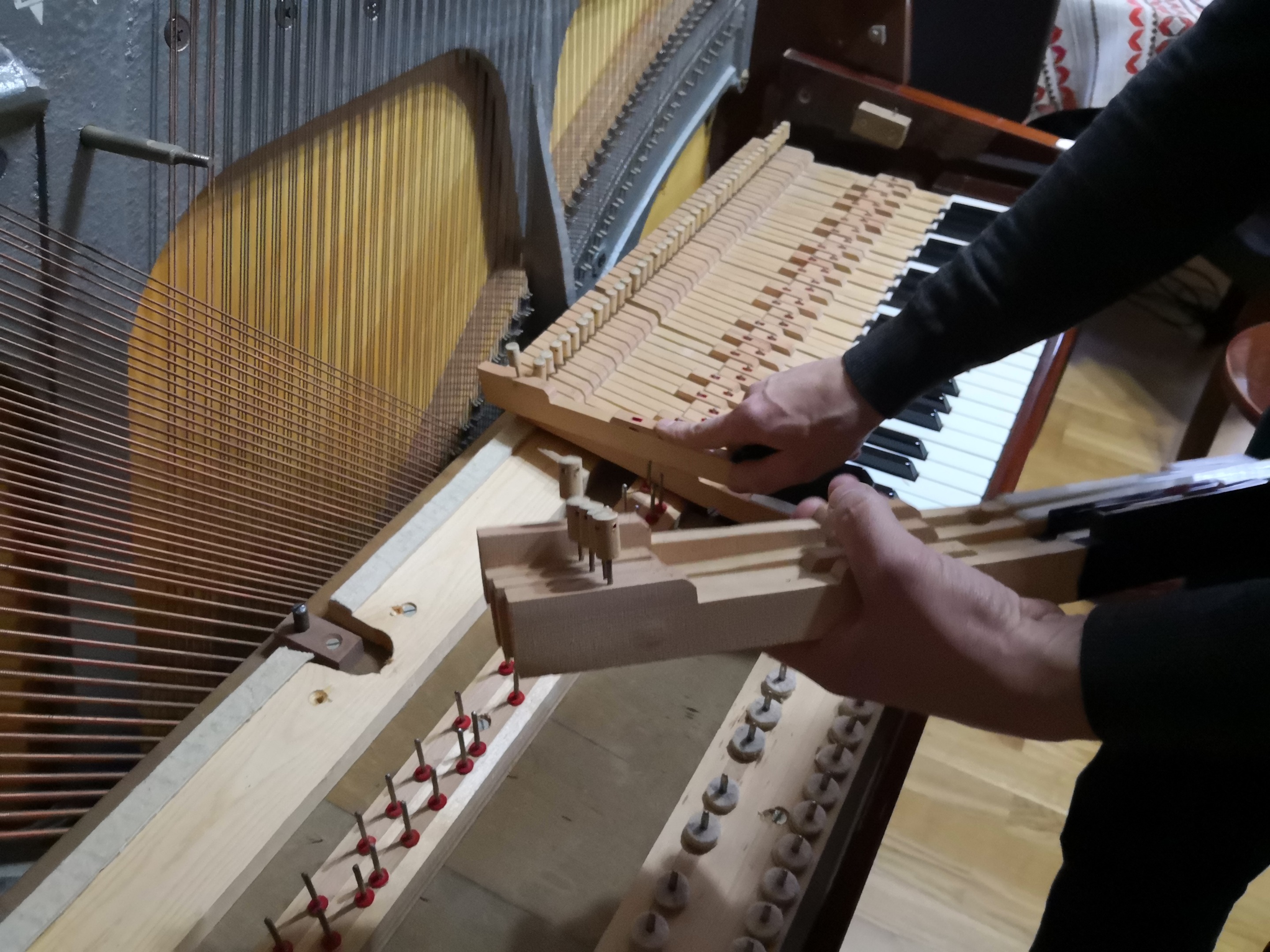
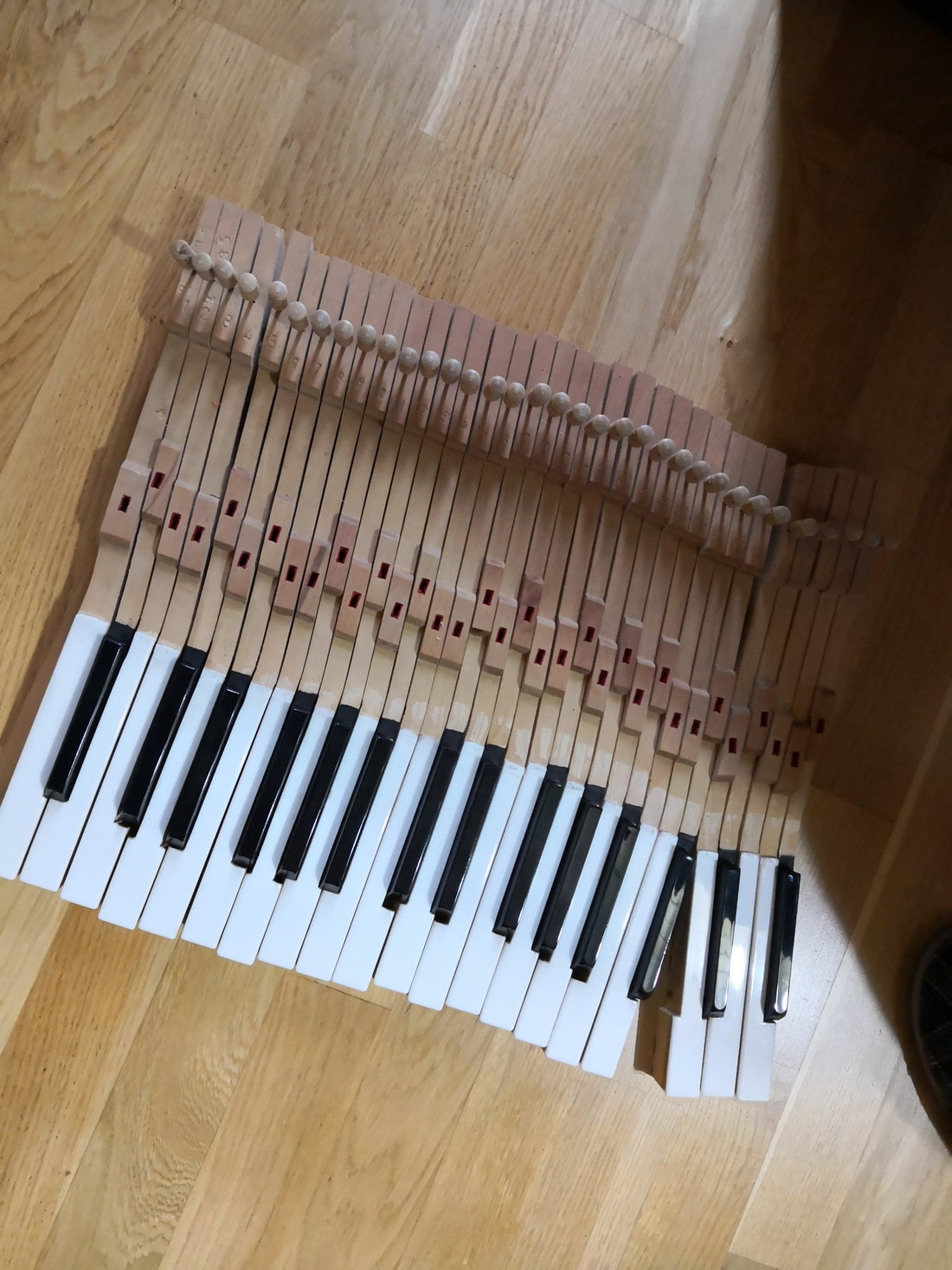
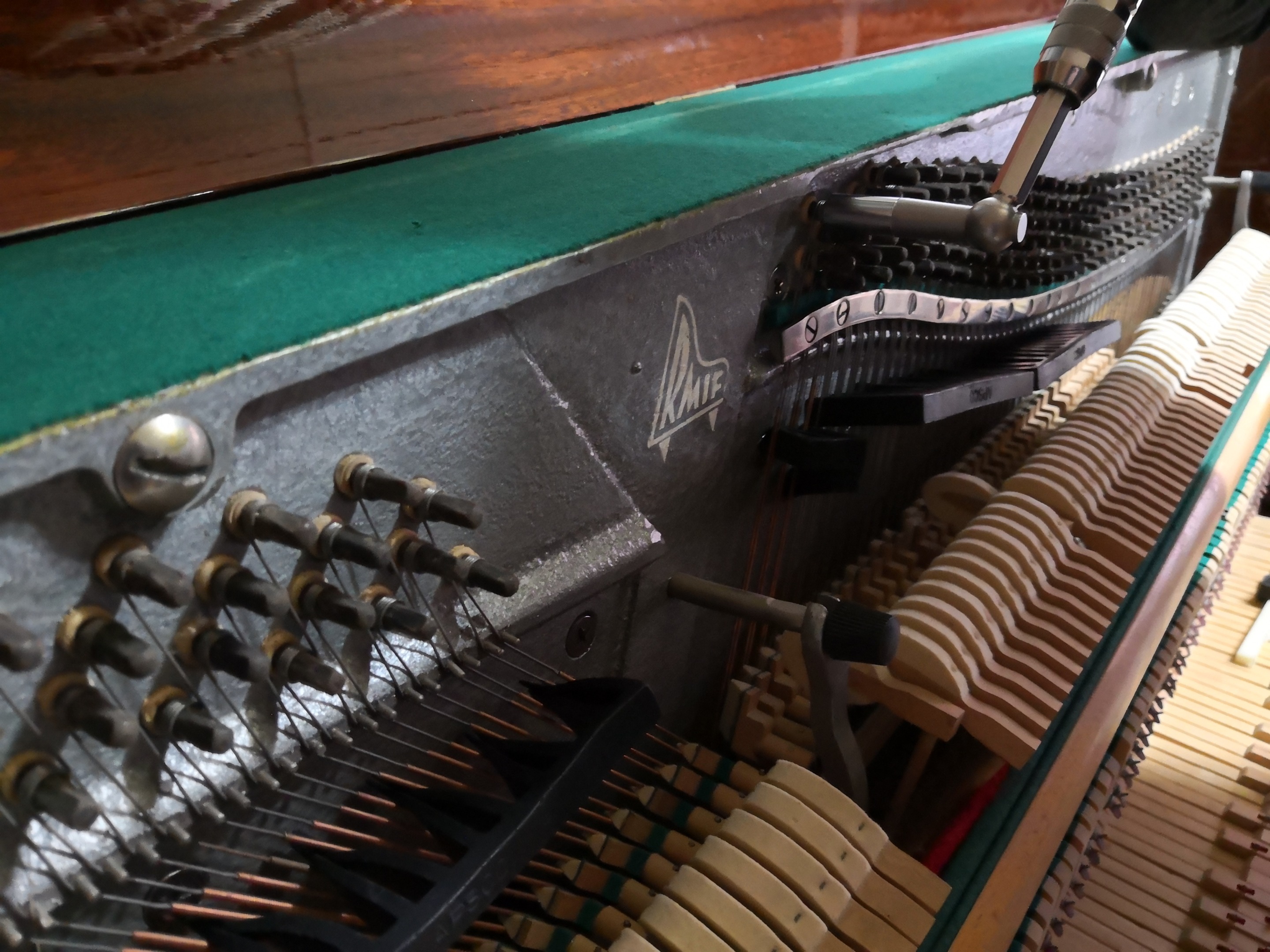
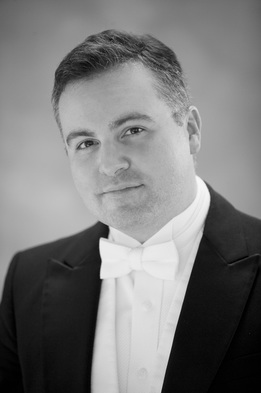



 RSS Feed
RSS Feed